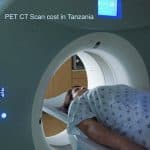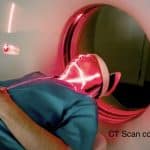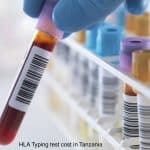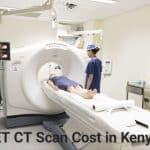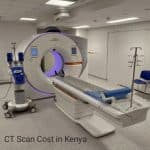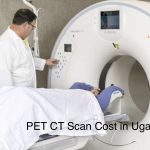| MRI Scan Type in Tanzania |
Cost Range (USD) |
Cost Range in Tanzanian Shillings |
| Head MRI Scan |
$400 – $600 |
TZS 960,000 – TZS 1,440,000 |
| Spine MRI Scan |
$500 – $700 |
TZS 1,200,000 – TZS 1,680,000 |
| Abdominal MRI Scan |
$550 – $750 |
TZS 1,320,000 – TZS 1,800,000 |
| Knee MRI Scan |
$450 – $650 |
TZS 1,080,000 – TZS 1,560,000 |
| Pelvic MRI Scan |
$600 – $800 |
TZS 1,440,000 – TZS 1,920,000 |
| Breast MRI Scan |
$700 – $900 |
TZS 1,680,000 – TZS 2,160,000 |
| Cardiac MRI Scan |
$800 – $1,000 |
TZS 1,920,000 – TZS 2,400,000 |
| Musculoskeletal MRI Scan |
$650 – $850 |
TZS 1,560,000 – TZS 2,040,000 |
| Prostate MRI Scan |
$750 – $950 |
TZS 1,800,000 – TZS 2,280,000 |
| Liver MRI Scan |
$600 – $800 |
TZS 1,440,000 – TZS 1,920,000 |
| Pancreatic MRI Scan |
$550 – $750 |
TZS 1,320,000 – TZS 1,800,000 |
| Shoulder MRI Scan |
$500 – $700 |
TZS 1,200,000 – TZS 1,680,000 |
| Neck MRI Scan |
$450 – $650 |
TZS 1,080,000 – TZS 1,560,000 |
| Hip MRI Scan |
$550 – $750 |
TZS 1,320,000 – TZS 1,800,000 |
| Thyroid MRI Scan |
$400 – $600 |
TZS 960,000 – TZS 1,440,000 |
| Ovarian MRI Scan |
$600 – $800 |
TZS 1,440,000 – TZS 1,920,000 |
| Temporal Bone MRI Scan |
$500 – $700 |
TZS 1,200,000 – TZS 1,680,000 |
| Facial MRI Scan |
$450 – $650 |
TZS 1,080,000 – TZS 1,560,000 |
| Jaw MRI Scan |
$550 – $750 |
TZS 1,320,000 – TZS 1,800,000 |
| Wrist MRI Scan |
$400 – $600 |
TZS 960,000 – TZS 1,440,000 |
| Uterine MRI Scan |
$650 – $850 |
TZS 1,560,000 – TZS 2,040,000 |
| Adrenal Gland MRI Scan |
$500 – $700 |
TZS 1,200,000 – TZS 1,680,000 |
| Cervical Spine MRI Scan |
$450 – $650 |
TZS 1,080,000 – TZS 1,560,000 |
| Proton MRS Scan |
$750 – $950 |
TZS 1,800,000 – TZS 2,280,000 |
| Sella Turcica MRI Scan |
$550 – $750 |
TZS 1,320,000 – TZS 1,800,000 |
| Elbow MRI Scan |
$500 – $700 |
TZS 1,200,000 – TZS 1,680,000 |
| Foot and Ankle MRI Scan |
$450 – $650 |
TZS 1,080,000 – TZS 1,560,000 |
| Coronary Artery MRI Scan |
$800 – $1,000 |
TZS 1,920,000 – TZS 2,400,000 |
| Adnexal MRI Scan |
$600 – $800 |
TZS 1,440,000 – TZS 1,920,000 |
| Chest MRI Scan |
$700 – $900 |
TZS 1,680,000 – TZS 2,160,000 |


